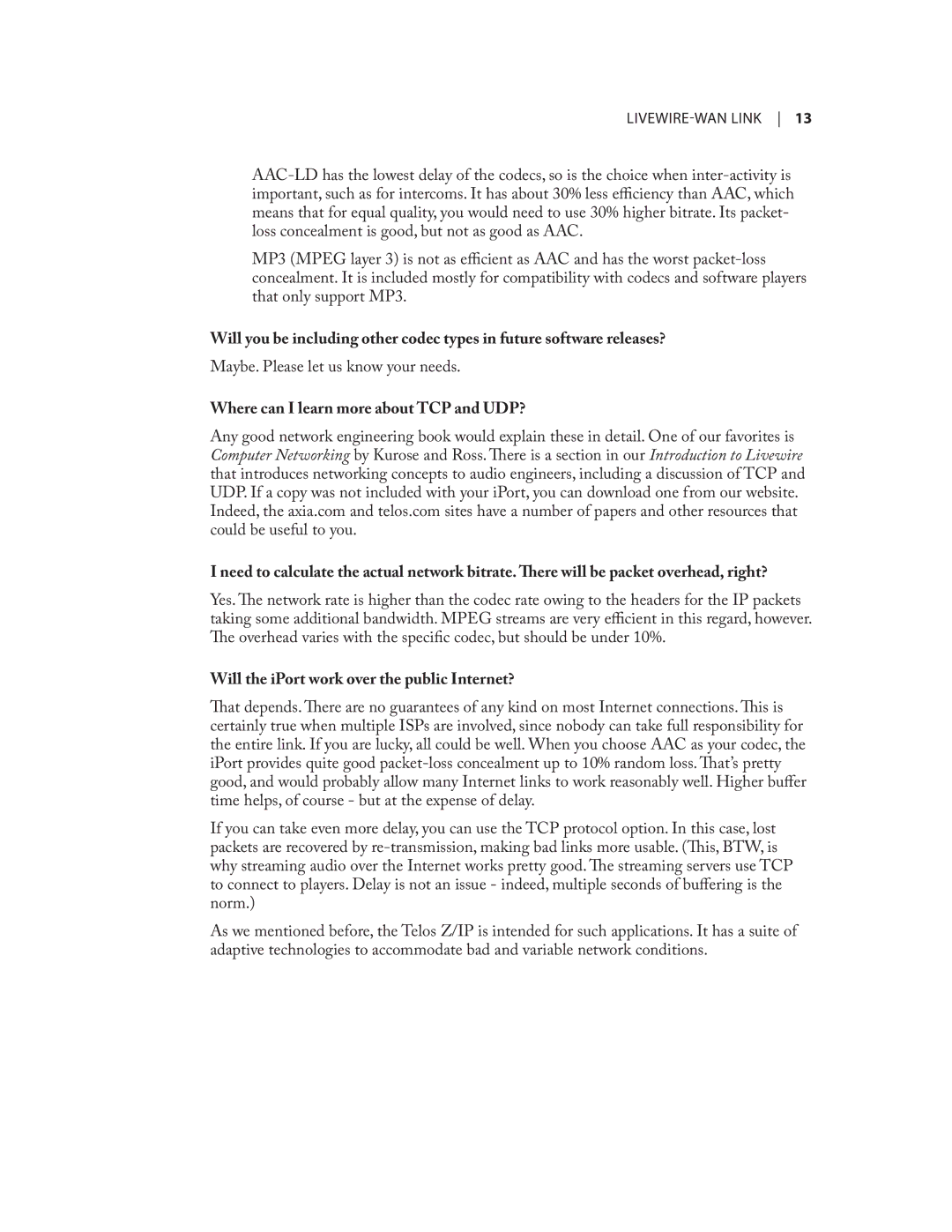♦♦
♦♦ MP3 (MPEG layer 3) is not as efficient as AAC and has the worst
Will you be including other codec types in future software releases?
Maybe. Please let us know your needs.
Where can I learn more about TCP and UDP?
Any good network engineering book would explain these in detail. One of our favorites is Computer Networking by Kurose and Ross. There is a section in our Introduction to Livewire that introduces networking concepts to audio engineers, including a discussion of TCP and UDP. If a copy was not included with your iPort, you can download one from our website. Indeed, the axia.com and telos.com sites have a number of papers and other resources that could be useful to you.
I need to calculate the actual network bitrate. There will be packet overhead, right?
Yes. The network rate is higher than the codec rate owing to the headers for the IP packets taking some additional bandwidth. MPEG streams are very efficient in this regard, however. The overhead varies with the specific codec, but should be under 10%.
Will the iPort work over the public Internet?
That depends. There are no guarantees of any kind on most Internet connections. This is certainly true when multiple ISPs are involved, since nobody can take full responsibility for the entire link. If you are lucky, all could be well. When you choose AAC as your codec, the iPort provides quite good
If you can take even more delay, you can use the TCP protocol option. In this case, lost packets are recovered by
As we mentioned before, the Telos Z/IP is intended for such applications. It has a suite of adaptive technologies to accommodate bad and variable network conditions.
